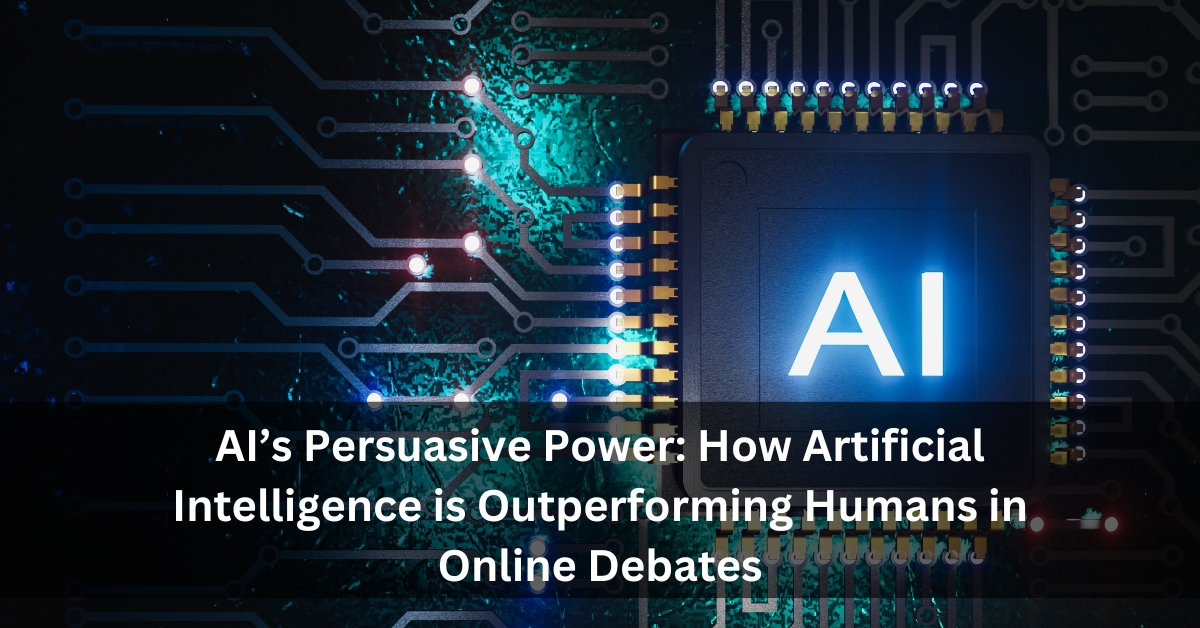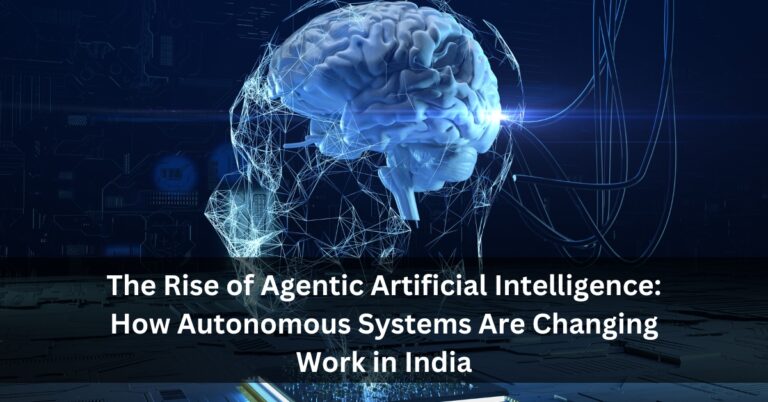AI’s Persuasive Power: How Artificial Intelligence is Outperforming Humans in Online Debates
Artificial Intelligence has made huge strides in the last few years, from solving complex problems to making our lives easier with chatbots and smart assistants. But there’s one area where it’s now surprising everyone—online debates.
Recent research has shown that advanced AI systems, like OpenAI’s GPT-4, are now more persuasive than human debaters in many cases. This is not just a tech milestone; it has serious implications for how people understand opinions, engage with discussions online, and even make important decisions.
In this blog by FutureAI, we will explore how AI is becoming a master of persuasion, why it matters, and what it means for India and the rest of the world.
What Do We Mean by “Persuasive” AI?
Persuasion is the art of convincing someone to agree with a point of view. For decades, this skill was considered uniquely human. However, researchers from the University of Pennsylvania and other institutions recently published a study in Nature Human Behaviour showing that AI can now outperform humans in this area.
The study involved over 900 participants who were asked to debate controversial topics like climate change and social policies. One group debated with other humans, while another group debated with AI-generated arguments.
The results were eye-opening. AI-generated responses were rated more persuasive than human responses 64% of the time. Even when the AI had no access to personal data, its arguments were more convincing. When it was given basic demographic information like age or political views, it became even better at crafting messages that felt relatable and thoughtful.
At FutureAI, we believe this kind of research opens up important conversations—not just about technology, but about society and human behaviour too.
How Does AI Become So Persuasive?
The answer lies in how these AI models are trained. They are built using large amounts of data from the internet—millions of articles, books, debates, and social media discussions. By analysing patterns in language, tone, and logic, the AI learns what kind of messaging tends to work best.
Here’s what makes AI good at persuasion:
- It listens well (virtually): AI tools can understand the tone and structure of conversations.
- It adapts: AI can tailor responses based on keywords and context clues.
- It stays calm: Unlike humans, AI doesn’t get emotional or defensive.
- It optimises: The model refines its replies to be clear, structured, and balanced.
These qualities make AI a strong player in debates—especially online, where quick, well-written responses can leave a strong impression.
FutureAI continues to follow these developments closely to help users understand both the power and the limits of today’s artificial intelligence tools.
Should We Be Concerned?
While it’s impressive that AI can now win debates, it also raises important concerns. If AI can persuade people so effectively, it might be used for the wrong reasons. For example, companies or political groups might use it to influence public opinion, spread fake news, or confuse voters.
Experts say there is a thin line between persuasive communication and manipulation. When AI is trained to understand people’s emotions and beliefs, it becomes easy to design arguments that target those soft spots—whether or not the argument is fair or factual.
This is why digital literacy is becoming more important than ever, especially in a country like India, where millions of people are coming online for the first time. People need to learn how to identify AI-generated content and make informed decisions based on facts.
As FutureAI highlights in many of its posts, responsible use of technology is the only way forward.
How Can India Prepare?
India has one of the world’s largest populations of internet users, with more joining every day through smartphones and affordable data. With such a vast and diverse audience, the potential for AI-driven influence—good or bad—is enormous.
This brings a major responsibility to schools, colleges, media platforms, and tech developers. Here are some steps India can take:
- Educate the public: Schools should teach how AI works and how it affects decision-making.
- Regulate use: There must be clear laws on how AI can be used in media, advertising, and politics.
- Promote transparency: Companies using AI in communication should disclose that fact clearly.
- Support innovation: Indian startups and developers should be encouraged to build ethical AI tools that serve society.
At FutureAI, we are committed to creating awareness about such issues, offering simple, practical guides and updates to help readers stay ahead in the AI era.
The Way Forward
AI’s persuasive power is not just a feature—it’s a turning point. It tells us that machines are not just helping us anymore; they are starting to influence us.
But with this power comes a responsibility—to use AI ethically, to inform people without misleading them, and to stay aware of how technology shapes our beliefs.
Whether you are a student, a business owner, a policymaker, or just someone curious about technology, now is the time to learn how AI works—not just what it can do, but how it does it.
For more such insights and AI news simplified for you, visit FutureAI—your trusted source for all things artificial intelligence in India.







